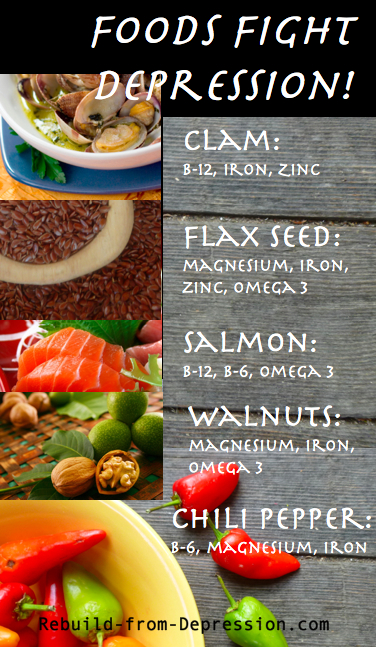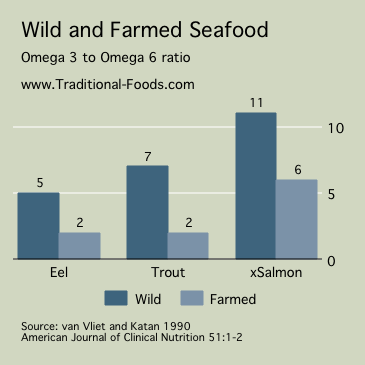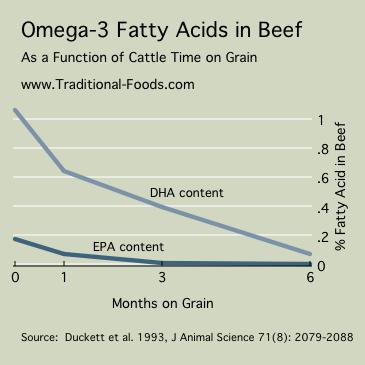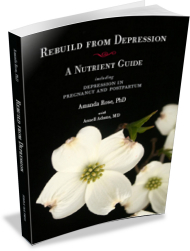 Amanda Rose, Ph.D.
Research continues to tie the declining health of Americans to our poor diet choices. With too much sugar and too much unhealthy fats, we bulge, our hearts give out, and our brains begin to "go crazy". Something as simple as a trans-fat-laden French fry may cause depression claims a group of Spanish researchers. Indeed, you are more likely to be depressed if you rely on a regular staple of packaged baked goods and snacks or items such as fast food French fries. When you look at a vending machine with a little packaged cake inside, that is what we are talking about here.
Amanda Rose, Ph.D.
Research continues to tie the declining health of Americans to our poor diet choices. With too much sugar and too much unhealthy fats, we bulge, our hearts give out, and our brains begin to "go crazy". Something as simple as a trans-fat-laden French fry may cause depression claims a group of Spanish researchers. Indeed, you are more likely to be depressed if you rely on a regular staple of packaged baked goods and snacks or items such as fast food French fries. When you look at a vending machine with a little packaged cake inside, that is what we are talking about here.
Your first lesson: Step away from that vending machine.
The most increasingly shunned trans fat comes in the form of vegetable shortening, a partially hydrogenated fatty acid that is cheap substitute for butter and lard in baking and for high heat oils in frying. If trans-fat is a cheap substitute for traditional forms of fat, it does beg the question: What fats should we eat to avoid depression? The Spanish study does not leave readers with a lot of wisdom on this key question, but we can look to other studies and to the history of the human diet for advice.
Omega 3 In Fish Does Fight Depression
The traditional human diet has been high in the Omega 3 fatty acid found in fish and seafood. In fact, Weston Price in his book Nutrition and Physical Degeneration, details how traditional peoples traveled great distances to get mollusks like crab and clam, rich in Omega 3 fats and abundant in minerals. These foods have a spectrum of nutrients that can help fill your health needs whether you are a toddler, teenager, pregnant mother, or an aging grandparent.
 If your diet is high in vegetable oils, you actually need even more Omega 3s. The Omega 6s in your vegetable oils compete for space in your cells with Omega 3s -- the Omega 6 oils win. Your best bet is to cut out sources of corn and other vegetable oils such as store-bought crackers and chips. You have surely already cut out trans fats as well but you should also know that your metabolism of trans fats interferes with your Omega 3 metabolism. If you eat a basket of crispy fish and chips, you need a whole lot of fish to make up for those chips.
Ideally, the fish will be wild -- wild salmon for instance. Wild fish and seafood are higher in Omega 3s than their farmed counterparts and they are generally lower in the toxins that now proliferate our waters.
If you already struggle from depression, you may need even more Omega 3 for depression than that crab or salmon fillet can provide. In depression clinical trials, researchers have found high doses of Omega 3 fatty acids effective in lowering depression -- on the order of four grams a day.
If your diet is high in vegetable oils, you actually need even more Omega 3s. The Omega 6s in your vegetable oils compete for space in your cells with Omega 3s -- the Omega 6 oils win. Your best bet is to cut out sources of corn and other vegetable oils such as store-bought crackers and chips. You have surely already cut out trans fats as well but you should also know that your metabolism of trans fats interferes with your Omega 3 metabolism. If you eat a basket of crispy fish and chips, you need a whole lot of fish to make up for those chips.
Ideally, the fish will be wild -- wild salmon for instance. Wild fish and seafood are higher in Omega 3s than their farmed counterparts and they are generally lower in the toxins that now proliferate our waters.
If you already struggle from depression, you may need even more Omega 3 for depression than that crab or salmon fillet can provide. In depression clinical trials, researchers have found high doses of Omega 3 fatty acids effective in lowering depression -- on the order of four grams a day.
Omega 9 In Olive Oil May Fight Depression
Olive oil may help fight depression. This is a new area of research but there is a lot of evidence that olive oil is good for us. It is associated with heart health, longevity, and reduced instances of degenerative diseases. It may protect against depression as well.
 One of my favorite meals combines Omega 9 and Omega 3 in the form of a healthy salad, with an olive oil-centered dressing, my favorite seasonal lettuce, and topped with salmon or crab. Make a dressing simply by combining olive oil with a bit of balsamic vinegar and chopped garlic. Add a bit of flax seed oil for additional Omega 3 fats.
One of my favorite meals combines Omega 9 and Omega 3 in the form of a healthy salad, with an olive oil-centered dressing, my favorite seasonal lettuce, and topped with salmon or crab. Make a dressing simply by combining olive oil with a bit of balsamic vinegar and chopped garlic. Add a bit of flax seed oil for additional Omega 3 fats.
Grass Fed Meat For Depression?
Wild game and pastured meats may help your struggle as well. In my book Rebuild from Depression: A Nutrient Guide I provide a list of "depression buster foods," foods high in nutrients associated with depression. Wild fish and wild game top the list because of the fatty acid profiles and the density of vitamins and minerals.
Beef liver is actually a great example. All animal liver is loaded with B vitamins and minerals; it is also very high in fat. Note in the graph at right that the fat is more likely to be of the Omega 3 variety if the animal has been on a diet of grass. I rely on liver when I am under great stress because it helps keep my body replenished of an array of nutrients. You can find it at any health food store and will definitely want to look for the organic label in this case.
Foods For Depression
 Food does affect your mood. Your brain needs the right mix of fats, vitamins, and minerals to be healthy. Some foods wreak havoc on that delicate balance and fast foods are a prime example. Other foods will help you fight depression, including fish and seafood abundant in Omega 3 and wild game with a healthy array of vitamins, minerals, and fats.
Incorporate these foods into your own diet and the diet of your family. You may be surprised to find a family a little less grumpy and on-the-edge. Over time, you may even protect your aging brain from decline if you nourish it well.
~~~
Support PARTNER WEBSITE NAME by buying the Rebuild Book as part of The Art of Healing's Extreme Library Sale. You can also find the book on Amazon
~~~
Food does affect your mood. Your brain needs the right mix of fats, vitamins, and minerals to be healthy. Some foods wreak havoc on that delicate balance and fast foods are a prime example. Other foods will help you fight depression, including fish and seafood abundant in Omega 3 and wild game with a healthy array of vitamins, minerals, and fats.
Incorporate these foods into your own diet and the diet of your family. You may be surprised to find a family a little less grumpy and on-the-edge. Over time, you may even protect your aging brain from decline if you nourish it well.
~~~
Support PARTNER WEBSITE NAME by buying the Rebuild Book as part of The Art of Healing's Extreme Library Sale. You can also find the book on Amazon
~~~
 Amanda Rose, Ph.D., lives on five acres in the Sequoia National Forest with her two sons, the second of whom was born to a depression-free pregnancy. She works with her mother Jeanie on the Traditional Foods website providing nutritious recipes and food science and health tidbits.
Amanda Rose, Ph.D., lives on five acres in the Sequoia National Forest with her two sons, the second of whom was born to a depression-free pregnancy. She works with her mother Jeanie on the Traditional Foods website providing nutritious recipes and food science and health tidbits. Amanda Rose, Ph.D.
Research continues to tie the declining health of Americans to our poor diet choices. With too much sugar and too much unhealthy fats, we bulge, our hearts give out, and our brains begin to "go crazy". Something as simple as a trans-fat-laden French fry may cause depression claims a group of Spanish researchers. Indeed, you are more likely to be depressed if you rely on a regular staple of packaged baked goods and snacks or items such as fast food French fries. When you look at a vending machine with a little packaged cake inside, that is what we are talking about here.
Amanda Rose, Ph.D.
Research continues to tie the declining health of Americans to our poor diet choices. With too much sugar and too much unhealthy fats, we bulge, our hearts give out, and our brains begin to "go crazy". Something as simple as a trans-fat-laden French fry may cause depression claims a group of Spanish researchers. Indeed, you are more likely to be depressed if you rely on a regular staple of packaged baked goods and snacks or items such as fast food French fries. When you look at a vending machine with a little packaged cake inside, that is what we are talking about here.
 If your diet is high in vegetable oils, you actually need even more Omega 3s. The Omega 6s in your vegetable oils compete for space in your cells with Omega 3s -- the Omega 6 oils win. Your best bet is to cut out sources of corn and other vegetable oils such as store-bought crackers and chips. You have surely already cut out trans fats as well but you should also know that your metabolism of trans fats interferes with your Omega 3 metabolism. If you eat a basket of crispy fish and chips, you need a whole lot of fish to make up for those chips.
Ideally, the fish will be wild -- wild salmon for instance. Wild fish and seafood are higher in Omega 3s than their farmed counterparts and they are generally lower in the toxins that now proliferate our waters.
If you already struggle from depression, you may need even more Omega 3 for depression than that crab or salmon fillet can provide. In depression clinical trials, researchers have found high doses of Omega 3 fatty acids effective in lowering depression -- on the order of four grams a day.
If your diet is high in vegetable oils, you actually need even more Omega 3s. The Omega 6s in your vegetable oils compete for space in your cells with Omega 3s -- the Omega 6 oils win. Your best bet is to cut out sources of corn and other vegetable oils such as store-bought crackers and chips. You have surely already cut out trans fats as well but you should also know that your metabolism of trans fats interferes with your Omega 3 metabolism. If you eat a basket of crispy fish and chips, you need a whole lot of fish to make up for those chips.
Ideally, the fish will be wild -- wild salmon for instance. Wild fish and seafood are higher in Omega 3s than their farmed counterparts and they are generally lower in the toxins that now proliferate our waters.
If you already struggle from depression, you may need even more Omega 3 for depression than that crab or salmon fillet can provide. In depression clinical trials, researchers have found high doses of Omega 3 fatty acids effective in lowering depression -- on the order of four grams a day.
 One of my favorite meals combines Omega 9 and Omega 3 in the form of a healthy salad, with an olive oil-centered dressing, my favorite seasonal lettuce, and topped with salmon or crab. Make a dressing simply by combining olive oil with a bit of balsamic vinegar and chopped garlic. Add a bit of flax seed oil for additional Omega 3 fats.
One of my favorite meals combines Omega 9 and Omega 3 in the form of a healthy salad, with an olive oil-centered dressing, my favorite seasonal lettuce, and topped with salmon or crab. Make a dressing simply by combining olive oil with a bit of balsamic vinegar and chopped garlic. Add a bit of flax seed oil for additional Omega 3 fats.
 Food does affect your mood. Your brain needs the right mix of fats, vitamins, and minerals to be healthy. Some foods wreak havoc on that delicate balance and fast foods are a prime example. Other foods will help you fight depression, including fish and seafood abundant in Omega 3 and wild game with a healthy array of vitamins, minerals, and fats.
Incorporate these foods into your own diet and the diet of your family. You may be surprised to find a family a little less grumpy and on-the-edge. Over time, you may even protect your aging brain from decline if you nourish it well.
Food does affect your mood. Your brain needs the right mix of fats, vitamins, and minerals to be healthy. Some foods wreak havoc on that delicate balance and fast foods are a prime example. Other foods will help you fight depression, including fish and seafood abundant in Omega 3 and wild game with a healthy array of vitamins, minerals, and fats.
Incorporate these foods into your own diet and the diet of your family. You may be surprised to find a family a little less grumpy and on-the-edge. Over time, you may even protect your aging brain from decline if you nourish it well.
 Amanda Rose, Ph.D., lives on five acres in the Sequoia National Forest with her two sons, the second of whom was born to a depression-free pregnancy. She works with her mother Jeanie on the Traditional Foods website providing nutritious recipes and food science and health tidbits.
Amanda Rose, Ph.D., lives on five acres in the Sequoia National Forest with her two sons, the second of whom was born to a depression-free pregnancy. She works with her mother Jeanie on the Traditional Foods website providing nutritious recipes and food science and health tidbits.